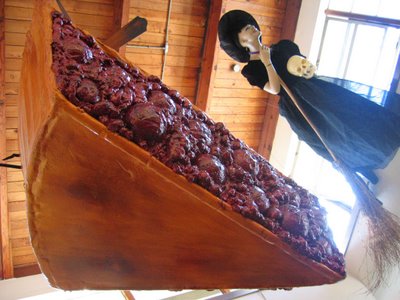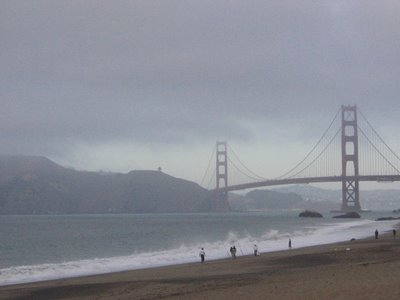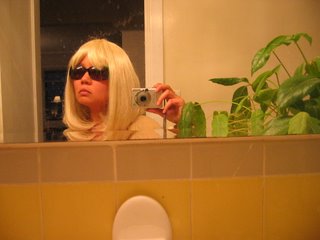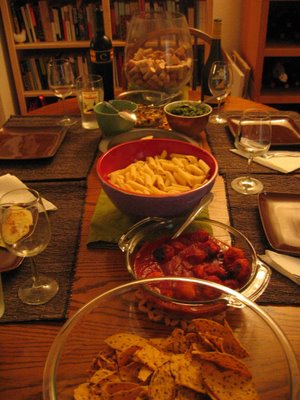
And we used the pumpkin ice cream for an ice cream pie with an Oreo cookie crust. And we drank Schramsberg Crémant. And we watched "The Bad Seed." And it was a good night.
And now I am ready for bed.











We spoke about the rising level of alcohol in wines and the trend toward allowing grapes to ripen longer before they are harvested. The resulting wines are bigger and more opulent, with sweeter fruit, softer tannins and an absence of herbal flavors that were once commonplace in cabernet sauvignon-based wines. I mention Clos du Val and Corison, two Napa Valley producers whose wines adhere to a less upfront, more austere style, and Mr. Rolland is strikingly dismissive.
“Are they as successful in the marketplace? No,” he said, warming to the subject. “Wine is done for what? The public! Wine is a business. They want to make wine to sell wine. In the U.S. they are honest enough to tell you they want good ratings. They don’t want loser wines.”I have been fuming over this quote since I first read it early yesterday morning. Rolland goes against absolutely everything wine is to me. The winemakers I admire don't go into the wine industry because "it's a business." In fact, it takes years to actually make a return on your wines -- if you plant vines, it will take 2-3 years before you get any fruit, and then when you actually use that fruit to make a wine, you'll have to wait an additional 2-3 years before you can release it. Seriously, anyone going into this business because they think it's an easy way to make money is nuts. Most everyone I respect in the industry -- those I've come to view as teachers -- is not in it for the money. They're in it because they genuinely love wine. Many left well-established (and yes, often more lucrative) careers -- tenured professorships at big-name universities even! -- to become cellar rats.



